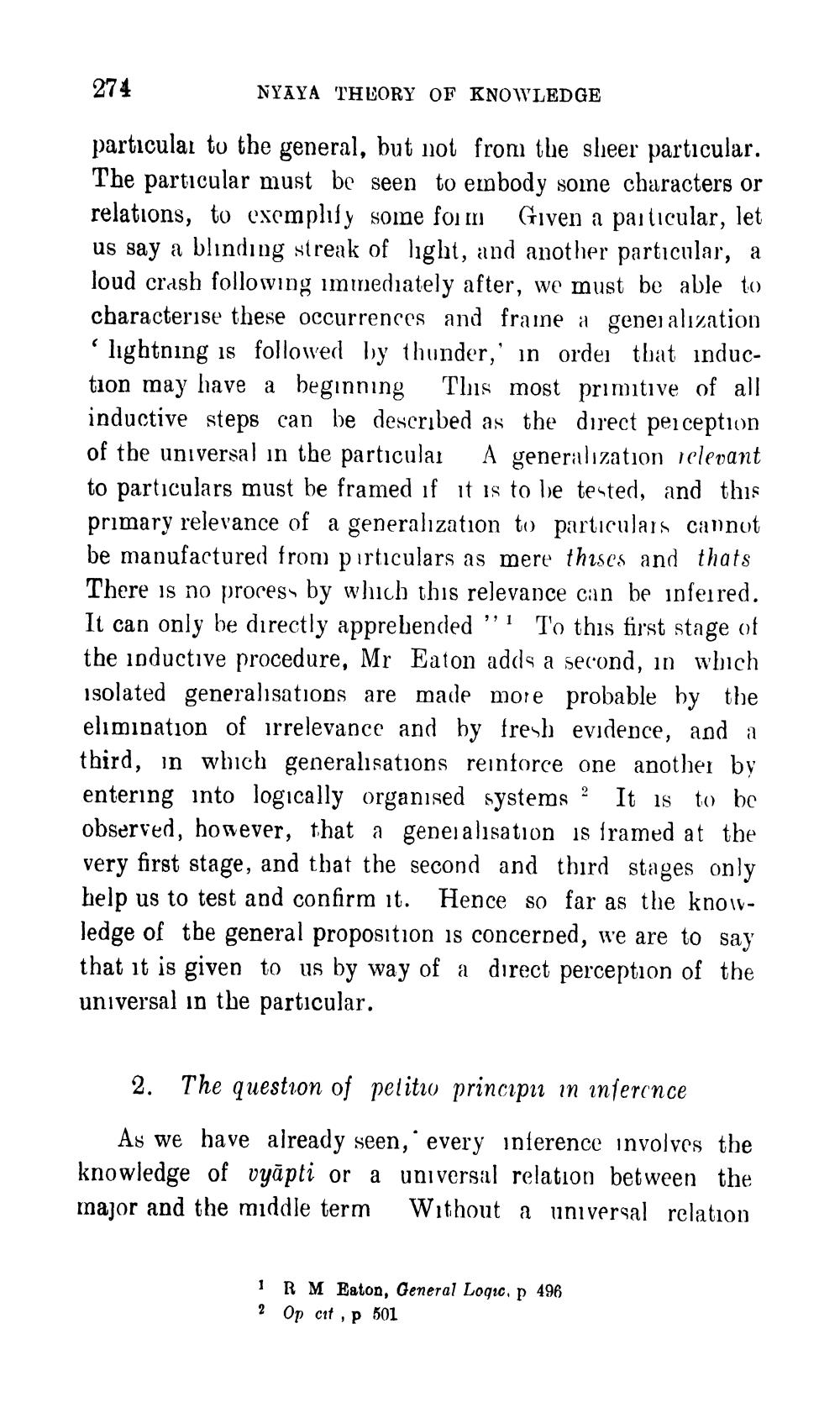________________
274
NYAYA THEORY OF KNOWLEDGE
particular to the general, but not from the sheer particular. The particular must be seen to embody some characters or relations, to esemplify some form Given a particular, let us say a blinding streak of light, and another particular, a loud crash following immediately after, we must be able to characterise these occurrences and frame a genealızation "lightning is followed by thunder,' in order that induction may have a beginning This most primitive of all inductive steps can be described as the direct perception of the universal in the particular A generalızation relevant to particulars must be framed if it is to be tested, and this primary relevance of a generalization to particulars cannot be manufactured from pirticulars as mere thises and thats There is no process by which this relevance can be inferred. It can only be directly apprehended”! To this first stage of the inductive procedure, Mr Eaton adds a second, in which isolated generalisations are made more probable by the elimination of irrelevance and by fresh evidence, and a third, in which generalisations reinforce one another by entering into logically organised systems? It is to be observed, however, that a generalisation is framed at the very first stage, and that the second and third stages only help us to test and confirm it. Hence so far as the knowledge of the general proposition is concerned, we are to say that it is given to us by way of a direct perception of the universal in the particular.
2.
The question of pelitio principii in inference
As we have already seen,' every inference involves the knowledge of vyāpti or a universal relation between the major and the middle term Without a universal relation
1 RM Eaton, General Logic, p 496 2 Op cit, p501




